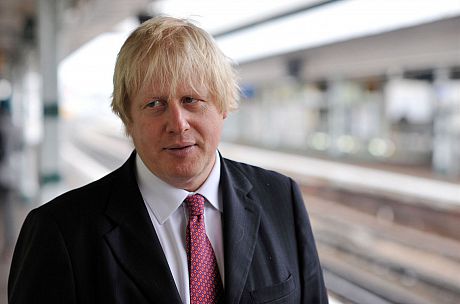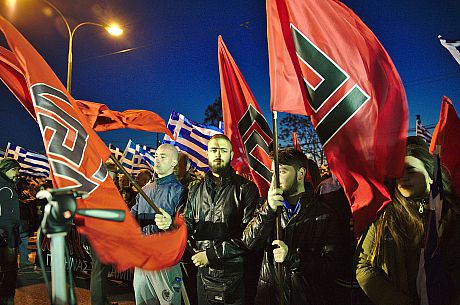A decision that leaves us with so many unknowns
Ivor Gaber is Professor of Journalism in the School of Media, Film and Music at the University of Sussex.
Having been writing about politics for more years than I care to remember, I find myself almost at a complete loss.
Normally, when speculating about politics, I find myself making predictions about one, or maybe two, big issues – which party will win the election, who will be the next leader of the party, even will the voters choose yes or no in the referendum? But today I'm writing about not one big issue but no less than seven, and I am confident in my predictions about none of them.
First, and the most pressing and worrying, is the immediate impact of Brexit, not just on the UK economy but on that of Europe and indeed the world. As I write the pound plunged against the dollar and stock markets in the UK, Europe and the Far East all plunged. Though there has been some recovery this was far more dramatic than the 2008 financial crash, something that we’re still struggling to recover from.

The pound plunged against the dollar following Brexit. Photo courtesy of Katrina Tuliao (CC BY 2.0).
Second, we could be facing an immediate political crisis. This is because David Cameron’s successor, wanting to avoid Gordon Brown’s fate after he failed to go to the country when he took over from Tony Blair and subsequently paid the price, might well call an early election.
Ironically, to enable this to happen when we have a fixed term Parliament (with the next election not due, in theory, until 2020) the new Tory leader will have to ask Parliament to pass a motion of no confidence in his or her own government before going to the country to ask the people to vote them back into power.
Boris Johnson is somewhat of a Marmite figure and might struggle to get on the short-list of two that Conservative MPs present to the party membership who then have the final say.
Of course another ‘don't know’ is who this new Tory leader going to be. Boris Johnson is the obvious front-runner but my guess is that he, being somewhat of a Marmite figure, might struggle to get on the short-list of two that Conservative MPs present to the party membership who then have the final say. My money, for what it's worth, is on either Theresa May or Michael Gove.
 Boris Johnson could struggle to get the nomination. Photo courtesy of Andrew Parsons/ i-Images (CC BY-ND 2.0).
Boris Johnson could struggle to get the nomination. Photo courtesy of Andrew Parsons/ i-Images (CC BY-ND 2.0).
And that brings us to the next don't know. If there is to be an early election will Jeremy Corbyn still be leading the Labour Party? As an anti-EU campaigner for the past 30 years he’s struggled to convince his party, not to mention the country, that he was really committed to the Remain campaign.
But under Labour’s leadership rules members have absolute sovereignty and there’s precious little evidence that they might do anything other than elect another candidate from the far left, who might equally struggle to win over Labour’s wavering voters. If the party does decide to choose someone closer to the centre then a few quid on Chuka Umunna might not be a complete waste of money.
Virtually all the experts (that group much maligned by the Leave campaign) are predicting that a Brexit will lead to a substantial contraction of the overall economy.
Then we come to the even more serious longer term problems.
First, there’s the longer term prospects for the British economy. Virtually all the experts (that group much maligned by the Leave campaign) are predicting that a Brexit will lead to a substantial contraction of the overall economy with severe consequences on the living standards of ordinary families and the public services. I just hope they are wrong.
Second, there’s the the impact on Europe. For Brexit won't just encourage other Euro-sceptic parties to step up the pressure for their own Euro referendums but many of these parties have unashamed racist, and in some cases, anti-democratic policies and aspirations that could represent a real threat to the peace that Europe has enjoyed for the past 70 years.
 Greece's Golden Dawn party. Photo courtesy of DTRocks (CC BY-SA 4.0).
Greece's Golden Dawn party. Photo courtesy of DTRocks (CC BY-SA 4.0).
Finally, back to the UK and the extraordinary geographic imbalance of the result which, with Scotland and Northern Ireland voting overwhelmingly to Remain, the future of the United Kingdom itself now hangs in the balance.
Once again Brighton (and to a lesser extent Lewes) has demonstrated how different it is from the rest of the county.
The Scottish Nationalists have made no secret of the fact that should England vote to leave and Scotland vote to stay – which is what has happened – they will not hesitate to call for a second independence referendum which, at this stage, they must stand a very good chance of winning.
Perhaps even more worryingly for those who see the territorial integrity of the UK as a crucial issue, are the voices of Republicans on both sides of the Irish border who are now saying that maintaining a European border across the island of Ireland would be untenable.
But let me conclude by bringing it back home to Sussex. Once again Brighton (and to a lesser extent Lewes) has demonstrated how different it is from the rest of the county. No surprise there, but it has left me wondering if the People’s Republic of Brighton and Hove might just now be eligible to seek membership of the EU.
Just a thought.




